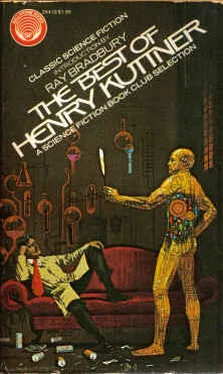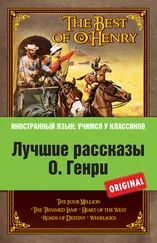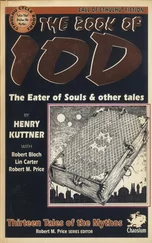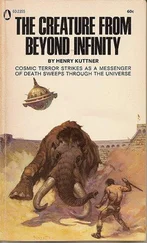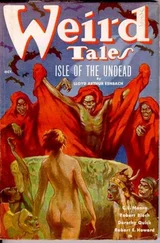Under the eyes of an adult he changes. Like an actor on stage, when he remembers, he strives to please, and also to attract attention to himself. Such attempts are not unknown to maturity. But adults are less obvious — to other adults.
It is difficult to admit that children lack subtlety. Children are different from mature animals because they think in another way. We can more or less easily pierce the pretenses they set up, but they can do the same to us. Ruthlessly a child can destroy the pretenses of an adult. Iconoclasm is a child’s prerogative.
Foppishness, for example. The amenities of social intercourse, exaggerated not quite to absurdity.
The gigolo .
“Such savoir-faire! Such punctilious courtesy!” The dowager and the blonde young thing are often impressed. Men have less pleasant comments to make. But the child goes to the root of the matter.
“You’re silly!”
How can an immature human being understand the complicated system of social relationships? He can’t. To him, an exaggeration of natural courtesy is silly. In his functional structure of life patterns, it is rococo. He is an egotistic little animal who cannot visualize himself in the position of another — certainly not an adult. A self-contained, almost perfect natural unit, his wants supplied by others, the child is much like a unicellular creature floating in the bloodstream, nutriment carried to him, waste products carried away.
From the standpoint of logic, a child is rather horribly perfect. A baby must be even more perfect, but so alien to an adult that only superficial standards of comparison apply. The thought processes of an infant are completely unimaginable. But babies think, even before birth. In the womb they move and sleep, not entirely through instinct. We are conditioned to react rather peculiarly to the idea that a nearly viable embryo may think. We are surprised, shocked into laughter and repelled. Nothing human is alien.
But a baby is not human. An embryo is far less human.
That, perhaps, was why Emma learned more from the toys than did Scott. He could communicate his thoughts, of course; Emma could not, except in cryptic fragments. The matter of the scrawls, for example.
Give a young child pencil and paper, and he will draw something which looks different to him than to an adult. The absurd scribbles have little resemblance to a fire engine, but it is a fire engine, to a baby. Perhaps it is even three-dimensional. Babies think differently and see differently.
Paradine brooded over that, reading his paper one evening and watching Emma and Scott communicate. Scott was questioning his sister. Sometimes he did it in English. More often he had resource to gibberish and sign language. Emma tried to reply, but the handicap was too great.
Finally Scott got pencil and paper. Emma liked that. Tongue in cheek, she laboriously wrote a message. Scott took the paper, examined it and scowled.
“That isn’t right, Emma,” he said.
Emma nodded vigorously. She seized the pencil again and made more scrawls. Scott puzzled for a while, finally smiled rather hesitantly and got up. He vanished into the hall. Emma returned to the abacus.
Paradine rose and glanced down at the paper, with some mad thought that Emma might abruptly have mastered calligraphy. But she hadn’t. The paper was covered with meaningless scrawls, of a type familiar to any parent. Paradine pursed his lips.
It might be a graph showing the mental variations of a manic-depressive cockroach, but probably wasn’t. Still, it no doubt had meaning to Emma. Perhaps the scribble represented Mr. Bear.
Scott returned, looking pleased. He met Emma’s gaze and nodded. Paradine felt a twinge of curiosity.
“Secrets?”
“Nope. Emma — uh — asked me to do something for her.”
“Oh.” Paradine, recalling instances of babies who had babbled in unknown tongues and baffled linguists, made a note to pocket the paper when the kids had finished with it. The next day he showed the scrawl to Elkins at the university. Elkins had a sound working knowledge of many unlikely languages, but he chuckled over Emma’s venture into literature.
“Here’s a free translation, Dennis. Quote. I don’t know what this means, but I kid the hell out of my father with it. Unquote.”
The two men laughed and went off to their classes. But later Paradine was to remember the incident.
Especially after he met Holloway. Before that, however, months were to pass, and the situation to develop even further towards its climax.
Perhaps Paradine and Jane had evinced too much interest in the toys. Emma and Scott took to keeping them hidden, playing with them only in private. They never did it overtly, but with a certain unobtrusive caution. Nevertheless, Jane especially was somewhat troubled.
She spoke to Paradine about it one evening. “That doll Harry gave Emma.”
“Yeah?”
“I was downtown today and tried to find out where it came from. No soap.”
“Maybe Harry bought it in New York.”
Jane was unconvinced. “I asked them about the other things, too.
They showed me their stock — Johnson’s a big store, you know. But there’s nothing like Emma’s abacus.”
“Hm-m-m.” Paradine wasn’t much interested. They had tickets for a show that night, and it was getting late. So the subject was dropped for the nonce.
Later it cropped up again, when a neighbor telephoned Jane.
“Scotty’s never been like that, Denny. Mrs. Burns said he frightened the devil out of her Francis.”
“Francis? A little fat bully of a punk, isn’t he? Like his father. I broke Bums’s nose for him once, when we were sophomores.”
“Stop boasting and listen,” Jane said, mixing a highball. “Scott showed Francis something that scared him. Hadn’t you better—”
“I suppose so.” Paradine listened. Noises in the next room told him the whereabouts of his son.
“Scotty!”
“Bang,” Scott said, and appeared smiling. “I killed ’em all. Space pirates. You want me, Dad?”
“Yes. If you don’t mind leaving the space pirates unburied for a few minutes. What did you do to Francis Bums?”
Scott’s blue eyes reflected incredible candor. “Huh?”
“Try hard. You can remember, I’m sure.”
“Oh. Oh, that. I didn’t do nothing.”
“Anything,” Jane corrected absently.
“Anything. Honest. I just let him look into my television set, and it — it scared him.”
“Television set?”
Scott produced the crystal cube. “It isn’t really that. See?”
Paradine examined the gadget, startled by the magnification. All he could see, though, was a maze of meaningless colored designs.
“Uncle Harry—”
Paradine reached for the telephone. Scott gulped. “Is — is Uncle Harry back in town?”
“Yeah.”
“Well, I gotta take a bath.” Scott headed for the door. Paradine met Jane’s gaze and nodded significantly.
Harry was home, but disclaimed all knowledge of the peculiar toys. Rather grimly, Paradine requested Scott to bring down from his room all of the playthings. Finally they lay in a row on the table — cube, abacus, doll, helmet-like cap, several other mysterious contraptions. Scott was cross-examined. He lied valiantly for a time, but broke down at last and bawled, hiccuping his confession.
“Get the box these things came in,” Paradine ordered. “Then head for bed.”
“Are you — hup! — gonna punish me, Daddy?”
“For playing hooky and lying, yes. You know the rules. No more shows for two weeks. No sodas for the same period.”
Scott gulped. “You gonna keep my things?”
“I don’t know yet.”
“Well-g’night, Daddy. G’night, Mom.”
After the small figure had gone upstairs, Paradine dragged a chair to the table and carefully scrutinized the box. He poked thoughtfully at the focused gadgetry. Jane watched.
Читать дальше
